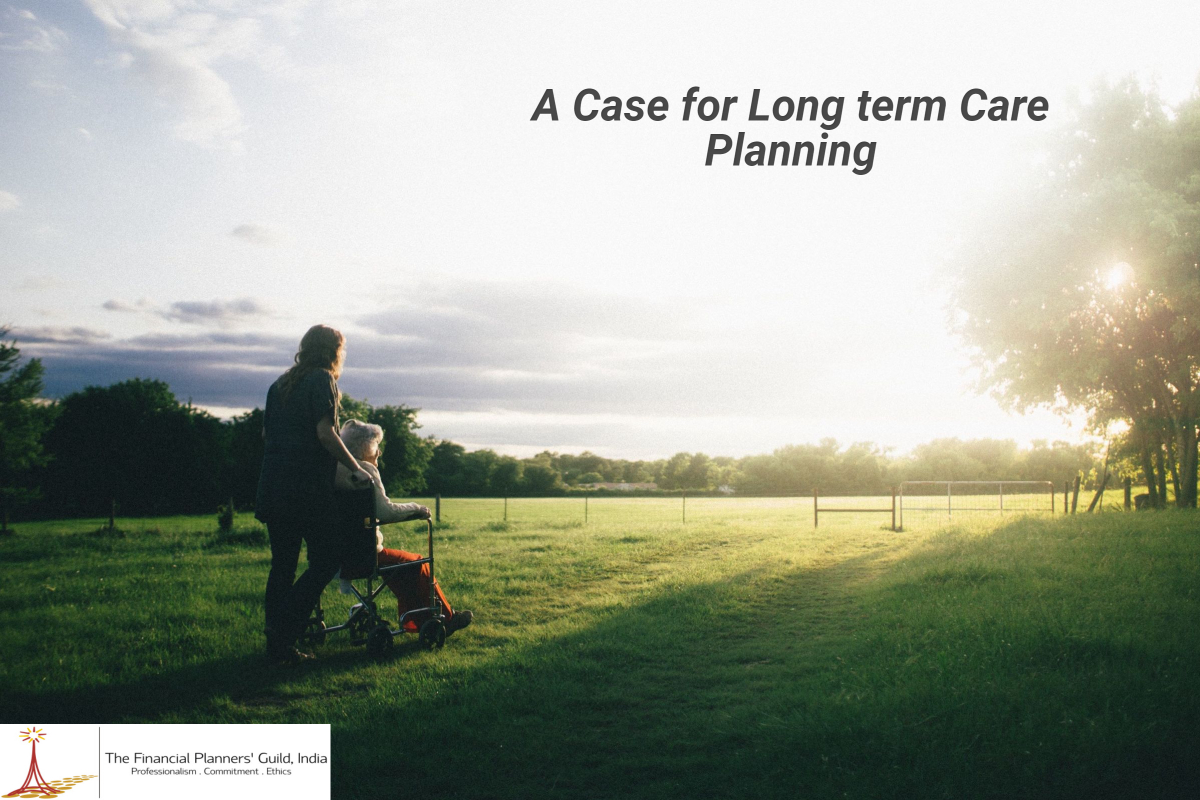
A person who requires long term care might or might not have an illness or disease but he is unable to perform basic activities of daily living (ADL) which include walking, dressing, bathing, eating, continence etc.
Today’s typical urban family is husband, wife and one child. Twenty five years hence when these single children start their own families, the situation will be that there will be two youngsters who will have four aged dependents. As the parents ages advance, there might arise medical and 24×7 support requirements. With the current trend of increasing life style diseases like diabetes and heart ailments, complications might begin at early ages too. Even if there is no illness, old age itself might bring in a requirement of support for activities of daily living (ADL). Even if the children are willing to support their parents, will they be able to? There will be requirement of man power and time which the children might not have. They will have their own children to support, their jobs/professions to be attended to. A very realistic scenario will include external help in the form of skilled nurses or assistants who can help with daily chores.
On the health front, we do have an organised health insurance system in India which covers expenses in case of hospitalisation. Many employers extend support in the form of group health insurance benefits. For defence personnel they have their own set-up which provides for life long coverage for dependents through their own networks. Government employees have the ESIC and the CGHS facilities which have been around for a long time. But none of these benefits include long term care.
Many developed countries have long term care (LTC) insurance. Some countries provide it as a part of their social security initiatives and some provide it as a voluntary cover through private companies. In India we do not have a similar support system or cover. We live on hope of all going well and depend on our family system to provide support if anything goes wrong. But looking at the way the social fabric in India is changing, it is time for looking beyond family for support. We have already seen the emergence of specialised colonies for senior citizens which provide for facilities that would be required by an elderly person to live comfortably. Preparing for long term care should be another area of focus in personal finance.

Even though LTC insurance plans have been available abroad since past few years, they are not without their share of problems. It has been reported recently that about 50% of the top 20 LTC insurers have stopped selling LTC insurance in the United States. They are losing money on these products. The premiums for new policies being issued under LTC plans in the US, has gone up 6-17%. Some of the older policy holders have to pay premiums which have been increased in the range of 50-100%. This makes it difficult for the people who have been paying the premiums over the years and now are in their retirement years. They cannot give up the policy benefits, but the premiums have become prohibitive. As a part of solution to this problem some countries are looking at outsourcing their long term care benefits to India. There are already centres in Goa and Pondicherry which cater to this segment of people from the U.S. The expense per person in one of these high end care centres is around USD 1500. This is about 50% of the average social security received by a US citizen. This will be very cheap for them as the average cost per day for long term care in the US would come to USD 3000. But this kind of service will be beyond reach of most of the Indian households.
So all said and done, even if you have long term care insurance available, they will not be without their share of problems. It will have to be supported with some corpus from your own money.We need to include long term care as a part of planning for retirement. Till such polices or facilities are available to Indian citizens, it will be well worth the effort to start building a corpus towards this goal from the day you start earning. Even a small contribution of Rs.1000 per month can grow up to Rs.38 lakhs at a conservative rate of return of 10% in 35 years. A lucky guy who never needs to touch this corpus in his lifetime will leave this as a wonderful inheritance for his heirs.
FPG India ©2024. All Rights Reserved.
Designed & Developed by W3M Technoz
Comments are closed.